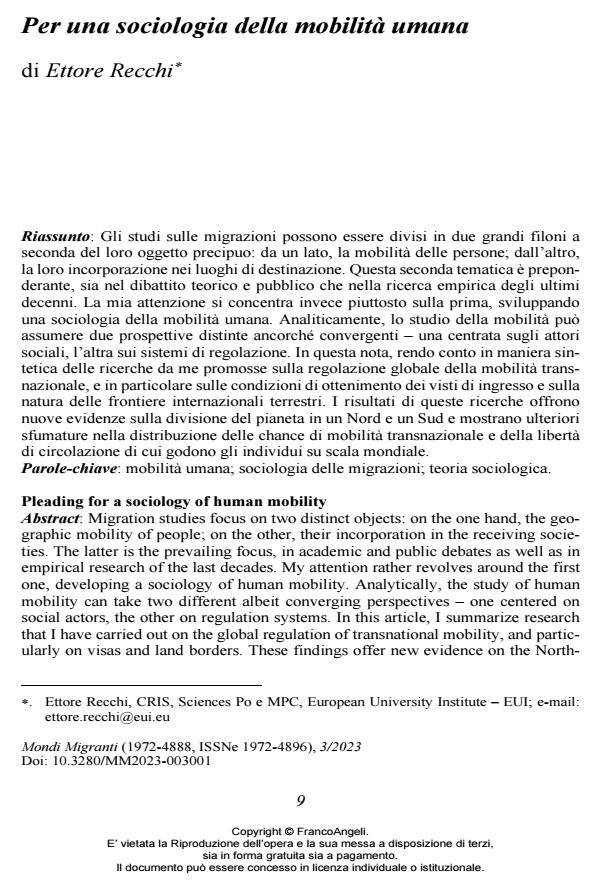Pleading for a sociology of human mobility
Journal title MONDI MIGRANTI
Author/s Ettore Recchi
Publishing Year 2023 Issue 2023/3
Language Italian Pages 21 P. 9-29 File size 380 KB
DOI 10.3280/MM2023-003001
DOI is like a bar code for intellectual property: to have more infomation
click here
Below, you can see the article first page
If you want to buy this article in PDF format, you can do it, following the instructions to buy download credits

FrancoAngeli is member of Publishers International Linking Association, Inc (PILA), a not-for-profit association which run the CrossRef service enabling links to and from online scholarly content.
Migration studies focus on two distinct objects: on the one hand, the geograph-ic mobility of people; on the other, their incorporation in the receiving socie-ties. The latter is the prevailing focus, in academic and public debates as well as in empirical research of the last decades. My attention rather revolves around the first one, developing a sociology of human mobility. Analytically, the study of human mobility can take two different albeit converging perspec-tives – one centered on social actors, the other on regulation systems. In this article, I summarize research that I have carried out on the global regulation of transnational mobility, and particularly on visas and land borders. These find-ings offer new evidence on the North-South divisions of the planet, also re-vealing nuances in the distribution of the chances of transnational mobility and free movement across the world.
Keywords: human mobility; migration studies; sociological theory.
Ettore Recchi, Per una sociologia della mobilità umana in "MONDI MIGRANTI" 3/2023, pp 9-29, DOI: 10.3280/MM2023-003001